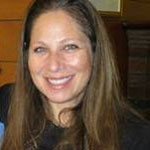The Connectivity Power of Recycling
Posted on September 3, 2014 by Lauri Ringer
I admit it. I’m a thrift shop junkie. I discovered thrift shops when I was in college. They were cool, and the vintage duds inside were even cooler.
As I matured, I needed a justification to fuel my thrift shop addiction. Thus began my love affair with the concept of recycling.
I soon recognized that recycling included not only tangibles — e.g., apparel, furniture, and cardboard boxes — but also intangibles such as love, hope, and ideas.
As I delved into the concept of recycling more deeply, I realized that everything recycles — not just the treasures found in trendy thrift shops. Some examples include:
The Universe. The Big Bang wasn’t the beginning; it was the universe in playback. As physicists George Musser and JR Minkel have explained it, “A universal cycle of birth and rebirth occurs every trillion years or so … and our universe marks just one phase in this infinite cycle.”
Water. The Earth’s hydrologic cycle is a natural process of water recycling from the land to the air and back to the land. Water we drink is the same water that the dinosaurs drank sixty-five million years ago.
Plants. When plants die, they rot, then dissolve into the soil and nourish life for new plants.
Animals. Dead animals feed scavengers, decompose into the soil, and are reborn as nutrients for plants. Those plants, in turn, feed and shelter living animals.
Love. Think about the love that is passed between generations, friends, teachers, or colleagues. Most of us have a treasured article that is a reminder of someone in our lives. There may be no material worth to the piece, but every time that item is used — and reused — its intangible, visceral value is recycled.
Ideas. Voltaire put it succinctly when he said, “Originality is nothing but judicious plagiarism.” There are no new ideas, only new ways to express them.
Religion. From Joseph Campbell’s study of comparative mythologies and religions — spanning prehistoric, ancient, and modern times — Campbell developed the concept of monomyth. Monomyth refers to his findings that all religions and myths share pretty much the same stories and lessons. He even recycled the term monomyth from Irish novelist and poet James Joyce.
Medicine. You may have seen a recent photograph online of a scene in a Chinese hospital where doctors in surgical garb are bowing to a covered body on a gurney. The body belonged to an eleven-year-old boy who donated his organs to save the lives of other people. This brave boy recycled not only his tangible organs, but also his intangible hope to revive the recipients of his body parts.
Science. The History Channel dedicates an entire series, Ancient Impossible, to the exploration of how many of today’s technological achievements were developed in antiquity. Ancient intellectuals created designs and inventions that we use to this day — marvels such as the first analog computer, the screw, the steam engine, sophisticated medical tools, stadiums, solar power, movement of water uphill, a system of pulleys to lift large, heavy objects such as boats and boulders … the list goes on and on.
Humans. “You are dust, and to dust you shall return.” (Genesis 3:19)
Armed with my newfound appreciation for recycling, a recent experience became transcendent. I took a batch of aluminum cans and plastic bottles to a recycling center that had a system with which I was unfamiliar. A homeless man offered to help me, after which I asked him, “Are you hungry?”
His eyes lit up, and he answered, “I’m always hungry.” As I handed him some containers of food I planned to take to a dinner party that night, he said, “I have something for you, too.”
He handed me what appeared to be a pile of random metal rods. I thanked him for his gift and felt invigorated by the exchange. When I got home, I figured out that it was a metal tower, sculpted with interlocking pieces.
I put it on my patio and accented it with plants and candles. Not only is it a beautiful and unique piece, but also a symbol of how the concept of recycling connects me to everything and everyone in the universe, even to a man whose name I will never know. Feeding him was like feeding myself and honoring all eternal connections. It has become a treasured item in my household.
Recycling, both tangible and intangible, does more than just make something new from something that has been used before. It is a common, sacred thread that connects everything and everyone in the universe.










